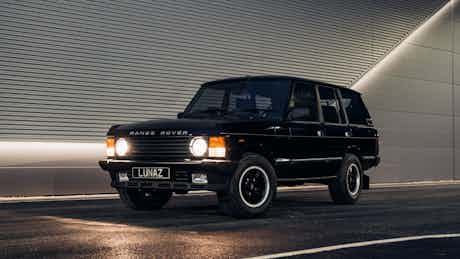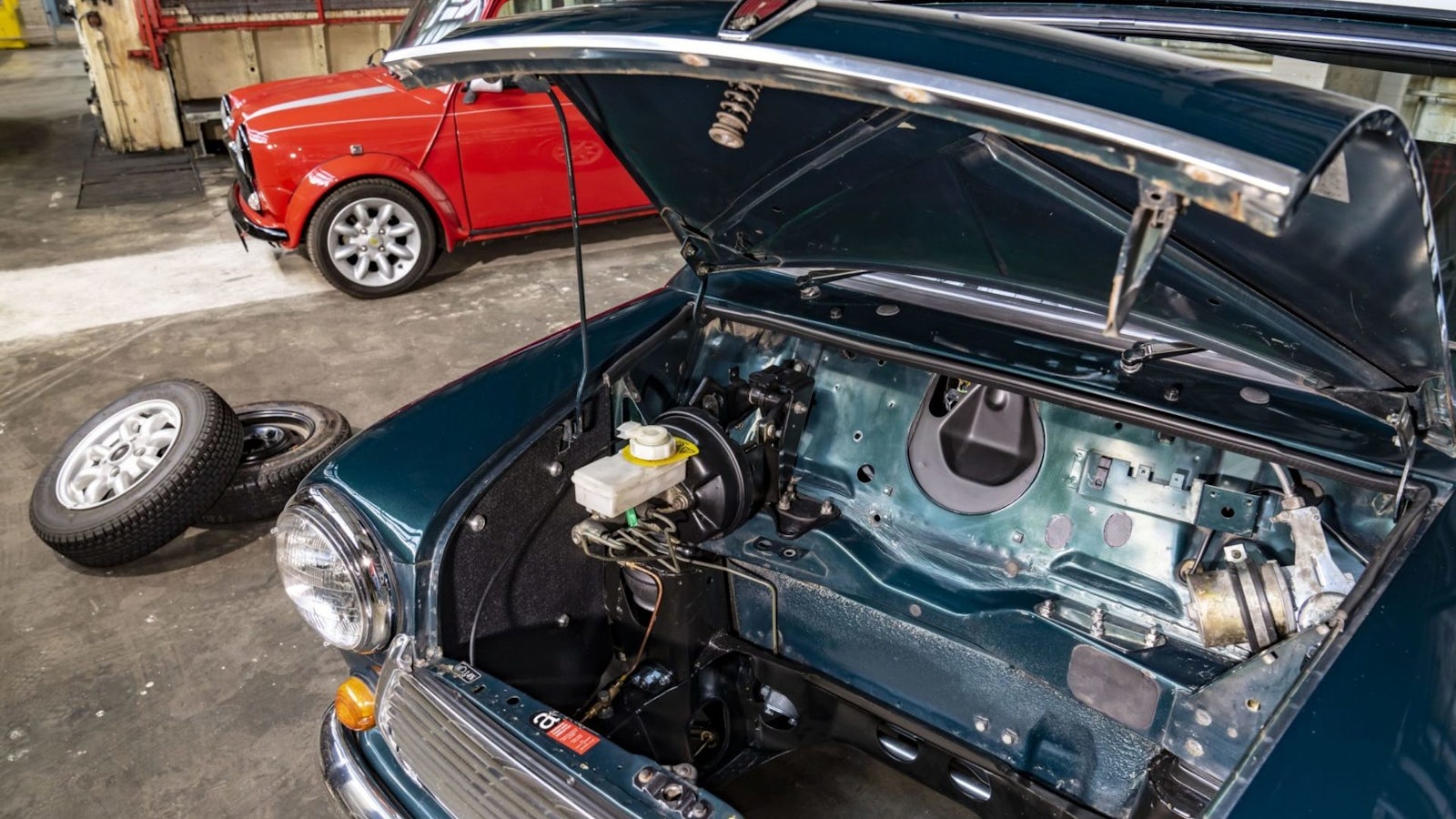Electric car conversion: How to convert a car to electric
June 20, 2022 by John Tallodi

Electric cars are efficient, require minimal maintenance and deliver impressive performance. However, a new EV’s purchase price can put some motorists off, which raises the question: Can you convert your old internal combustion engine (ICE) car to electric power?
Read on to find out what it takes to carry out an electric conversion and whether it is a savvy, cost-effective solution or an expensive folly best avoided.
The process of converting a car to electric
The basics of converting your ICE car into an EV involves ditching the engine, exhaust system, radiator and drivetrain in favour of an electric motor and battery pack. Some conversions retain certain components, while others are bespoke designs that use all new parts. Sounds simple enough, but, as always, the devil is in the details.
While an electric motor weighs far less than a conventional petrol engine, the additional weight of the batteries and their placement will put extra strain on the brakes, suspension and chassis, while auxiliary systems like the power steering and air conditioning all need to be modified as well.
In most cases, you will need to weld in additional structural components to account for the additional weight, and while the end result will seem simpler and have far fewer moving parts, the process is by no means a simple one.
Doing it yourself vs using a specialist company
The popularity of electric car conversions is on the rise and so are the number of businesses that offer conversion kits and turnkey electric conversions. While generic kits are available, the vast majority of conversions are focused on classics. Prices for converted cars start at around £30,000 and top out at well over £500,000 for a fully re-engineered classic car.

Doing the conversion yourself will generally cost a lot less, however, you will need to be comfortable around the mechanical and electrical components of your vehicle and have a fair amount of time on your hands.
A rough estimate for the electrical components and batteries is around £10,000, additional performance and a longer range are the two main factors that can hike up the pricing. Outsourcing the job to a qualified mechanic can be a happy compromise between a full DIY endeavour and having your car converted by a specialist.
Companies like EV Europe offer both universal EV kits as well as EV packages for classic Ford Mustangs, VW Beetles, Land Rover Defenders and some French classics like the Citroen DS and Renault 4. If you prefer to take the turnkey specialist route, there are a number of great options out there, too. Some even allow you to return the car to its original state in the future if required.
Zero EV offers conversion kits for the Porsche 964, certain Mazda MX-5 models and the classic 1970s Mercedes-Benz Pagoda.
Falcon Electric offer EV conversions for a broad range of vehicles, with average prices starting at just over £33,000. They also stock individual EV components.
London Electric Car focuses on Minis, Land Rover Defenders, VW Beetles and Camper vans – all classics of course, and they suggest a starting point of £30,000 to cover the conversion and any potential upgrades that may be required.
Electric Classic Cars offers conversions for classics built from the 1950s to the early ‘80s, prices range between £30,000 and £100,000. They do offer DIY kits but only to companies.
For those for whom money is no object, Lunaz specialises in turning desirable classics like Aston Martins, Bentleys, Rolls-Royces and Jaguars into EVs. Along with the EV conversion, Lunaz also restores the vehicles to as-new condition, with endless customisations and options. A Rolls-Royce Silver Cloud will set you back £420,000 while an electric Aston Martin DB6 is a slightly dearer £1,140,000.
The route you take is largely based on the budget you have available; and while it may cost more, we would recommend making use of the services of a specialist for additional peace of mind.

How much does it cost to convert a car to electric?
A DIY kit installed by a qualified mechanic is roughly £15,000, while conversions by specialists start at the £30,000 mark.
A basic Dacia Sandero costs just over £12,500, so is comparable to the DIY EV option, but you do get the benefit of a new car warranty. The cheapest new EV on the market is the smart EQ Fortwo, which is a little over £20,000, while the more practical Nissan Leaf is £26,995.
That makes an EV conversion on a regular car a hard sell, it starts to make more sense if you are wanting to preserve and enjoy your classic car. This is the reason so many companies are specialising in these older, more valuable models at the moment.

Can any car be converted to electric?
Theoretically any ICE car can be converted to electric power, although some vehicles are better suited to the conversion than others. Older cars are less complex, and the changes required to install an electric drivetrain are usually less onerous than on a more modern vehicle. So, simpler is usually better, but EV conversion technology is constantly evolving and some companies have already shown great results when converting newer hybrid cars to fully electric vehicles.

The performance you can get out of an EV conversion largely depends on how much you are willing to spend and how much power and additional weight the donor car can handle. As an example, the London Electric classic Mini conversion uses a small Nissan Leaf motor and 20kWh battery pack which offers nippy performance with a range of 70 miles. The range can be extended with a larger battery pack if required.
Power outputs range from as little as 45hp to 660hp and more, and with the immediate power delivery of an electric motor, your converted vehicle should feel far livelier than before. Top speed may be lower (but still enough for motorways) but standing-start acceleration and overtaking performance should be markedly better.
Most specialists claim that their conversions do between 100-200 miles on a charge, but this is purely dependent on the size of the battery pack and can be extended if required.
Car Change? Carwow!
Looking for a new set of wheels? With Carwow you can sell your car quickly and for a fair price – as well as find great offers on your next one. Whether you’re looking to buy a car brand new, are after something used or you want to explore car leasing options, Carwow is your one stop shop for new car deals.















